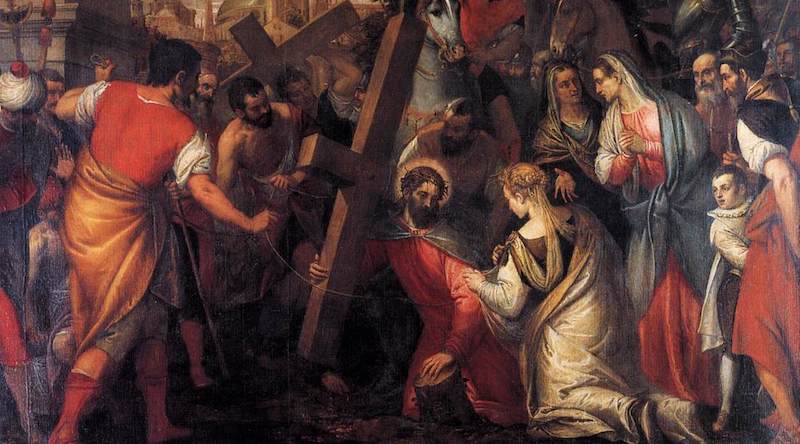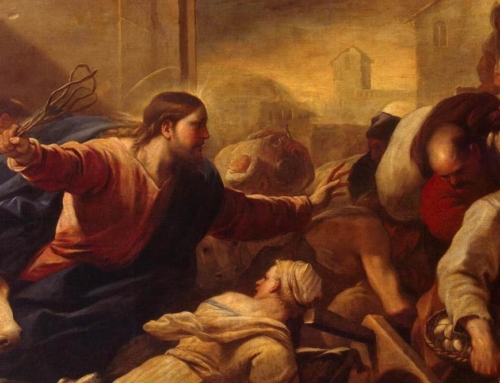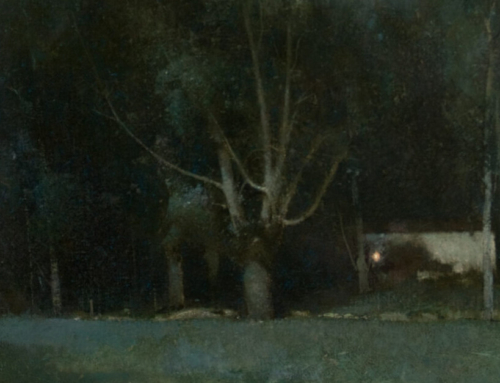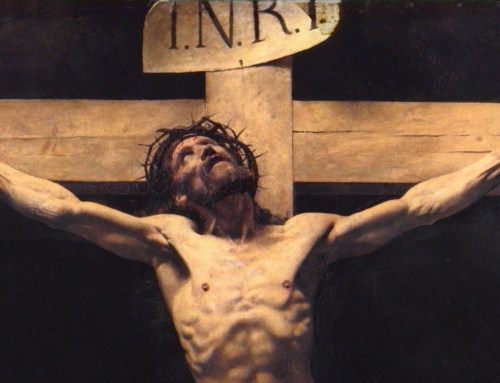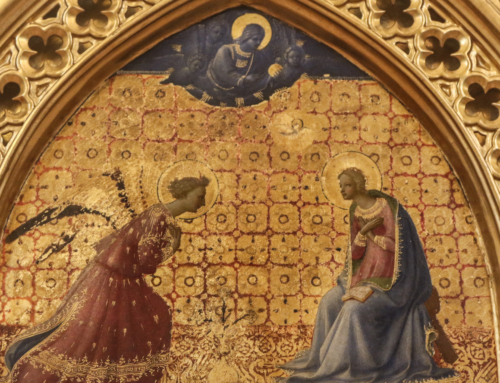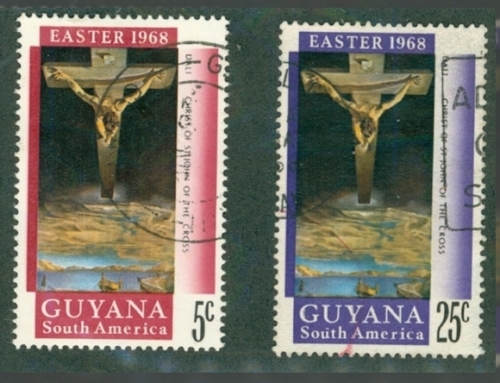This is part of a series entitled, “The Reason for Our Hope.” Read the series introduction here. To see other posts in the series, click here.
Every spring, as the trees blossom and the lilies bloom and the birds return with their sweet songs, I find myself filled with hope. The somber haze of winter dims the future and makes my movement toward it sluggish and halfhearted. But when spring comes, vigor naturally follows. My eyes open wider, and I see more clearly the good things God has prepared. My limbs grow stronger, and my steps are swifter and freer. Springtime has the air of moving toward good things.
But while all other animals move toward growth and new life, bearing fruit and new young, man takes one day to walk straight toward death. On one Friday every spring, men, women, and children walk in solemn procession to kiss the body of Christ Crucified.
As the birds and squirrels look on in incomprehension, Christians process to the Cross. “Like people sentenced to death, we have become a spectacle to the world, to angels and human beings alike” (1 Cor 4:9). But in this season of new life what makes Christians move against the tide of all the world, into the arms of the dead? What unseen force draws them?
Jesus.
On the Cross, there’s only Jesus. The joy of Cana, the health of Bethesda, the full bellies by the Sea, and even the joy of new life at Bethany disappear. All the goods that could commend Jesus to the world of nature have disappeared. Jesus hangs on the Cross, solitary in our eyes. This is his moment of glory because, at this very moment, he shows the faithful that he is all we need.
The Cross is foolishness to gentiles. Man on his own, the philosopher and scientist, stands at the peak of the natural world. He has dominion over the birds of the air, the fish of the sea, and all the wild beasts. He alone can recognize the existence of his Creator, and at his best, he does: “Ever since the creation of the world, his invisible nature, namely his eternal power and deity, has been clearly perceived in the things that have been made” (Rom 1:20). But natural man moves toward God only by human lights. Thus he approaches the Creator only as the majestic and glorious God of heaven. The highest genius of man could never move him a single step toward the Cross—he cannot see the supernatural light hidden there, and his feeble heart cannot love the invisible goodness hidden in Christ Crucified.
This Friday, Christians move against the tide by a different light and a different force. The Cross is shrouded with the darkness of natural death, but “darkness is not dark for you, and night shines as the day” (Ps 139:12). On the Cross, Jesus illumines the Church with the supernatural light of faith. In that very same act of love, as he enlightens our eyes to see his invisible goodness, Jesus draws our wills to himself by a new hope. The Cross draws man against the stream of all the world because it manifests the sheer goodness of God and gives us the power to pursue it with the very strength of God. The Cross, more than anything else in all creation, has the power to draw man and to hold him because it has an uncreated power. “For I am sure that neither death, nor life, nor angels, nor principalities, not things present, nor things to come, nor powers, nor height, nor depth, nor anything else in all creation will be able to separate us from the love of God in Christ Jesus our Lord” (Rom 8:37–38).
Christian hope is not founded on human strength, just as Christian faith is not founded on human sight. Faith and hope are supernatural—they touch God himself, and they do so by his power. This is why “hope does not disappoint, because the love of God has been poured into our hearts through the Holy Spirit who has been given to us” (Rom 5:5). When the holy people of God draw close to Jesus, kissing his wounds, they witness to his absolute triumph over all evils and even his supremacy over all goods. Because Christians move toward God by God’s own power, nothing can stop them. Their hope is firm: to hold onto God forever.
Many will try to pry your fingers away from the holy wood. We grasp natural goods by our own strength, and we shrink from death by nature as well. Earthly life is good; death is bad—these are the truths we see naturally. They lie close to us and affect us easily.
Jesus has called you to pursue a higher life, and he died to make your fingers strong enough to hold it. He promises that if you hold onto him now, in the dim light of faith and the swaying bridge of hope, looking through the fog of bodily delights, worldly honors, and the shame of the Cross, he will give you hands to hold him always and eyes to see him face to face.
Saint Thomas chose rightly when he asked for “Nothing but you, Lord.” He chose rightly because he saw the goal of Christian hope: “The blessed possess these three things in God; because they see Him, and in seeing Him, possess Him as present, having the power to see Him always; and possessing Him, they enjoy Him as the ultimate fulfillment of desire” (ST I, q.12, a.7, ad 3).
The Cross is fearful to the natural eye and distasteful to the natural heart, but you have a new light and a new heart. We hold on to Jesus by God’s strength, not our own. This is not a time to be timid—Christian hope has the daring of a lover, a face “set like flint” (Isa 53:7). This Friday and every day, say confidently like the Beloved in the Song of Songs, “I have held him, and I will not let him go” (Song 3:4).
✠
Image: Carlo Caliari, Jesus Meeting Veronica

